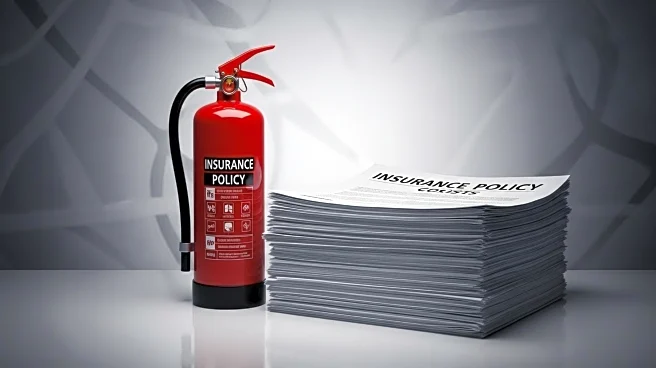What's Happening?
In response to the Grenfell Tower fire tragedy, building regulations have been significantly revised to enhance fire safety standards. These changes have led to increased insurance costs for property owners and tenants, as insurers adjust their underwriting criteria to account for heightened risks. The new regulations focus on stricter guidelines for construction materials, particularly cladding and insulation, which were critical factors in the Grenfell incident. As a result, both landlords and tenants may face higher insurance premiums, reflecting the increased costs of compliance and risk management.
Why It's Important?
The overhaul of building regulations and the subsequent rise in insurance costs have broad implications for the real estate and construction industries. Property owners must ensure compliance with updated safety standards, potentially incurring additional expenses for renovations or new constructions. Tenants may experience increased rental costs as landlords pass on higher insurance premiums. These developments highlight the importance of fire safety in residential buildings and the need for stakeholders to adapt to evolving regulatory environments to mitigate risks and protect lives.
What's Next?
Property developers and builders will need to navigate the new regulatory landscape to ensure compliance in future projects. This may involve investing in safer construction materials and technologies to meet updated standards. Insurers will continue to assess risks and adjust premiums accordingly, influencing the overall cost of property ownership and rental. Stakeholders, including government agencies and industry leaders, will likely engage in ongoing discussions to refine regulations and promote fire safety awareness.










